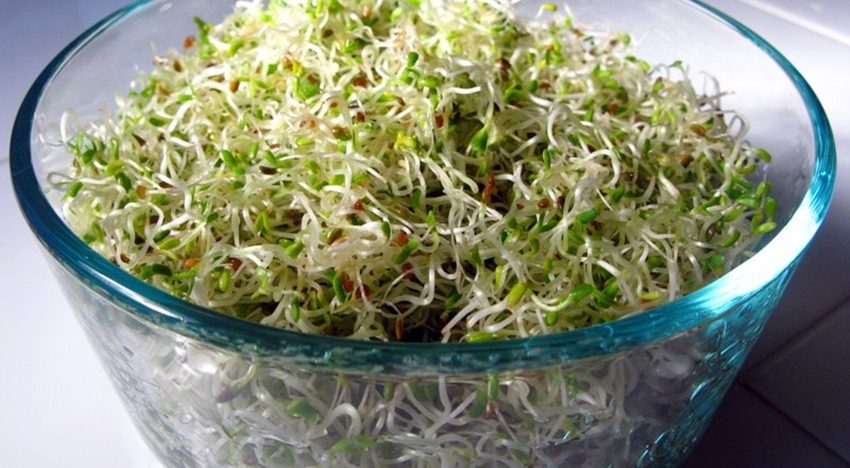Alfalfa sprouts are popular in salads as well as in sandwiches. Photograph by I believe I can fry/Flickr
The biggest setback during menopause is the decrease in oestrogen levels. Oestrogen is the female hormone that regulates the reproductive system and also protects against ailments such as heart disease. This is why women are at a higher risk for heart stroke during and after menopause according to G Padma Vijay, a Mumbai-based author and nutrition consultant.
But a diet filled with foods rich in phytochemicals – chemical compounds found organically in plants – can help contain most of the side effects of menopause including hot flashes, besides keeping blood sugar and cholesterol levels under control. Says Vijay, “Plant-based foods that contain phytochemicals that mimic oestrogen are helpful during menopause.”
Some of the plant-based foods that mimic oestrogen are:
Soya
All soy products also help lower cholesterol levels in the body, thereby cutting down the risk of high blood pressure and cardio vascular disease.
Alfalfa sprouts
Besides mimicking oestrogen, they also increase the fibre content in your diet.
Flax seeds
They are also a powerful source of anti-oxidants and reduce the free radical load in the body, thereby preventing heart disease and other kinds of cellular damage, says Vijay.
“While legumes don’t mimic oestrogen, they add to the fibre content in the diet and help reduce risk of diseases such as diabetes and heart attack, which women are more prone to after menopause,” says Vijay, “Lower oestrogen levels always increases the risk of these diseases.”
Whole grains and brown rice are also good additions to a menopausal diet. “All foods rich in salt and sugar should be cut down if not avoided during and after menopause,” says Vijay, “High salt increases water retention in the body, which increases the blood pressure levels and then leads to a heart attack.”










